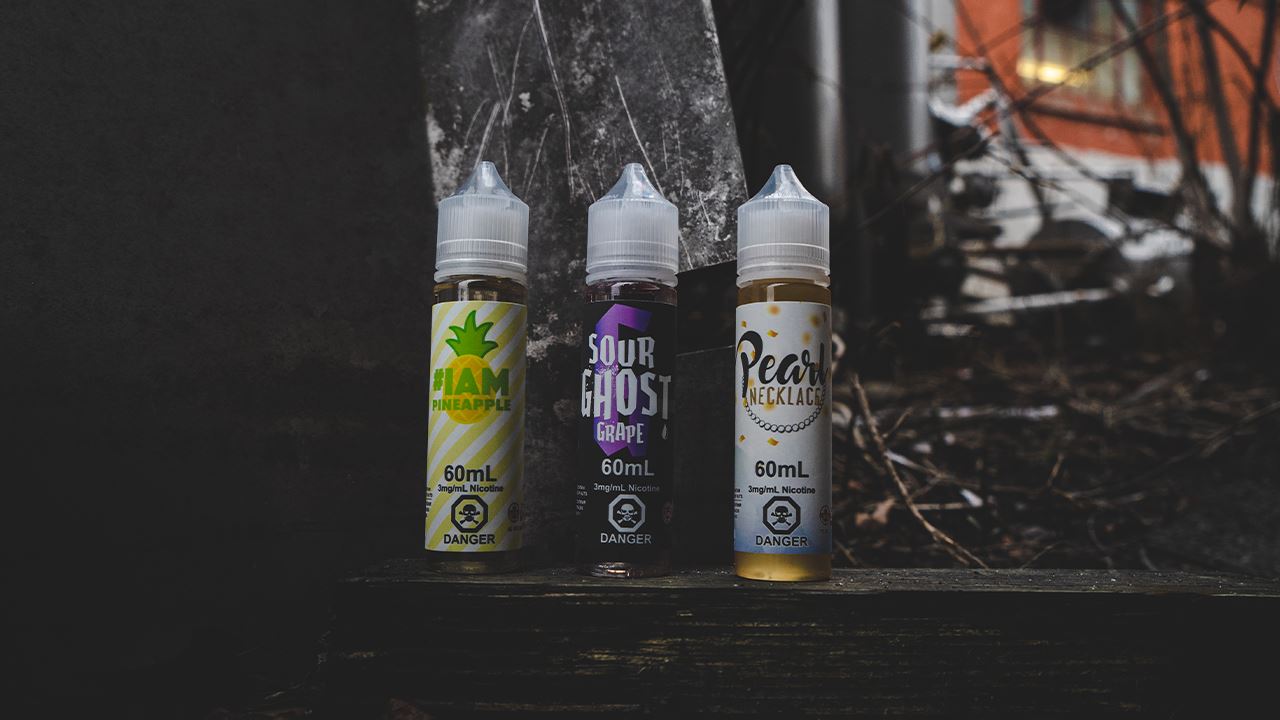
The Foundations of Responsible e-Liquid Manufacturing
We’re not ones to toot our own horns here at VapeMeet, but we are very proud of our manufacturing facility and its certifications. We’re happy to know that we were right, consumers really do demand compliant, responsibly manufactured e-liquids and the proof is in the purchase.
Though it wasn’t the case a few years back, customers are asking us every day if our products are made in “an ISO lab”. We always tell them with pride that they are, but there’s more to responsible e-liquid manufacturing than ISO9001:2015 certification, and we’d like to tell everyone all about it.

Most of the people we talk with seem to assume that ISO certification means that you have a lab, but that’s not really the important thing. Yes, our lab is “ISO7” certified, but all that means is that the lab’s air filtration system has met the metrics for airborne particle counts and clean air refresh rates.
Sure, clean air is important, and every manufacturer should have it, but they should also have so much more. The barrier to entry for manufacturing should not be simply ‘a clean place to do it’. Manufacturer’s should also be ISO9001:2015 certified. So what’s that about?
You can’t talk about ISO:9001 without talking about QMS (Quality Management Systems). A QMS is basically a system that establishes and documents processes and procedures to hit the objectives of the company. In our case, e-liquid manufacturing, it means we work from the perspective of our end product, and ask ourselves:
What tools do we use to make e-liquid? How are those tools calibrated and maintained? Are their better tools? What are the pros and cons of our methods? Etc. Then we do the same for our ingredients, our packaging processes, our storage, shipping, employees, their training – basically, every step of every facet of the company is analyzed, documented, analyzed again for efficiency and consistency improvements and updated. And the process also doesn’t stop, we do this all year and are audited by a certification body to make sure we are on the right track and allowed to maintain our certification.
Perhaps the most important part of our ISO QMS system is the consistency and traceability of our products. We’ve established that they are made in a clean environment, but how do we ensure we follow our processes, do the same thing every time and end up with the same results? Simple, we scrutinize and document every step along the way, and track the output data for further review!
We use QMS software from our good friends at Isolocity. Chris and the team have developed robust software tools that makes our lives easier, and they are paperless! Our team walks around the facilities with iPads running Isolocity that do everything from data entry, photo documentation and reporting to inventory management, product tracking and maintenance scheduling (plus so much more).

Everything is filed and stored in the cloud forever, and along with our policy to keep catalogued, physical samples of every batch of liquid we produce, we can track every bottle we make and sell down to the ml. Flavouring recall notice? No problem, we have records and batch codes. Think something is off with your product? No problem, let me grab a sample and test it on our end. Our ISO QMS is the backbone of everything we do, and it lets us stand proud as manufacturers.
So that’s it, that’s how your e-liquid is made!
 Well, there’s actually even more. We also have GMP (Good Manufacturing Practices) certification. These practices are similar to ISO in that they codify our practices that are developed within the scope of agencies that control the authorization and licensing of the manufacturing of e-liquid.
Well, there’s actually even more. We also have GMP (Good Manufacturing Practices) certification. These practices are similar to ISO in that they codify our practices that are developed within the scope of agencies that control the authorization and licensing of the manufacturing of e-liquid.
Because a common international standard does not yet exist for e-liquid, our GMP program was developed as a blending of a certain food, beverage and pharmaceutical practices as defined by our accrediting body. Think about it this way, ISO defines and documents a more general standard that is recognized worldwide, whereas GMP is much more specific to our industry and unique business.
One more, then we’re done here – HACCP (Hazard Analysis and Critical Control Points). This one is a doozy, and we almost never hear anyone bring it up – but it may be the most important. Though HACCP exists primarily for food safety, there are many aspects that directly relate to the products we manufacture.
Boiled down, HACCP is a system that aims to prevent physical hazards during production from affecting our finished products. These hazards may be in the form of trace contaminants, faulty seals on the bottles, spoilage of ingredients, foreign objects, etc. The first step is analyzing our entire production process (again) to identify every conceivable hazard that could influence our processes and products. Then we document plans to mitigate any risk and a plan in the event that the risk becomes a reality.
Here’s one example that we like to share. Our auditor had us diagram every light in the building on a scale floorplan. We had to identify the type of light bulbs that we used, ensure they were all covered, document the materials that the covers were made from, etc. Then we had to calculate the distance of each light from the location of every piece of equipment, device, tool, uniform, ingredient and finished product in the building. From there, we had to assess the risk of one of those bulbs breaking, the cover breaking, and the possibility of a piece of glass entering the production process. Finally, we had to develop a process to ensure none of this hypothetical glass could ever contaminate the process and define the steps we would take if we believed it may have.

That’s just one example, there were many (like a lot) more, some even more intense. Again, the entire process is ongoing and we’re always developing it further and refining as we go. Keep in mind, we are audited for HACCP every year, as well as ISO and GMP. The auditors ensure that we haven’t added anything to the process, hired new people, changed a method. It’s as though we are constantly being watched and recorded by invisible statisticians – and that’s the way it should be.
We are sometimes asked why these certifications are not mandatory for our industry. We say that they will be, and the sooner the better. This is how the world of manufacturing works and you’d better believe the same requirements will be mandatory in our industry. You may then ask, why has VapeMeet gone above and beyond? The answer is that we haven’t. We’re doing things the way they ought to be done, the way they must be done very soon – we just didn’t want to be late to the party.
The good news is that we’re not the only ones. A couple other companies in Canada have the same certifications, but most do not. We couldn’t have pulled any of this off without our good friends at Dvine Labs. These guys set the standard for this industry and we followed their lead. Someone had to be first, and we’re glad it was them. Dvine helped develop the very framework that makes certification in our industry possible and we thank them for it whenever we possibly can.
We’d also like to thank Isolocity and their team again. We always tell our colleagues that you don’t NEED the robust software solutions and consulting that Isolocity provides, but the alternative is a reality worse than any hell – spreadsheets, custom software, endless files and notes, acres of dead trees and of course figuring all of this out for yourself. In the world of compliance, Isolocity are the sages.
So while you can’t get the last 20 minutes of your life back after reading this, at least you know how our products are made!
Thanks for reading,
VapeMeet


